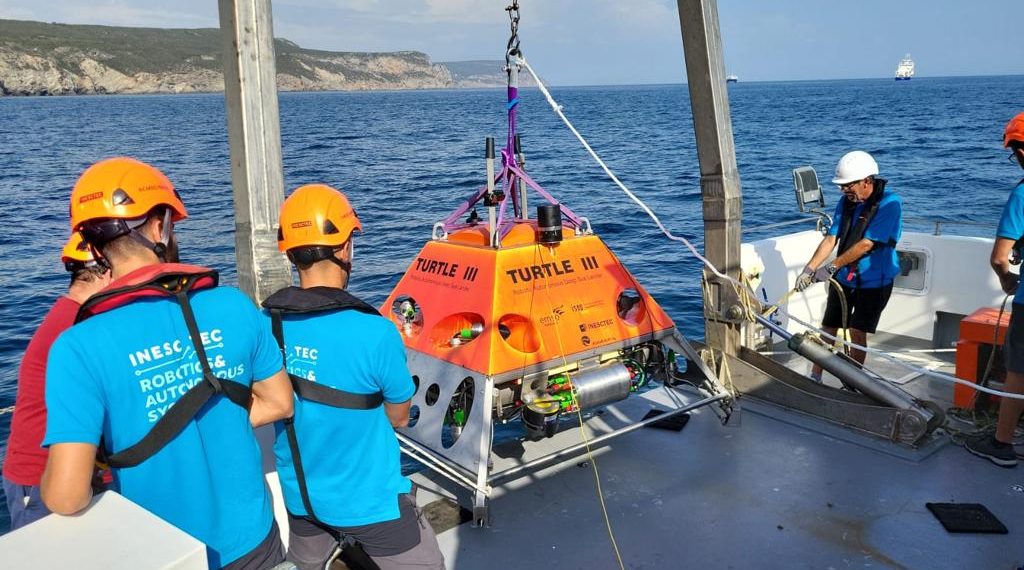The Maritime Operational Experimentation Centre (CEOM), in Troia, hosted the 12th edition of REPMUS – Robotic Experimentation and Prototyping Augmented by Maritime Unmanned Systems, one of the largest robotics exercises in the country, with INESC TEC’s participation.
Over the course of 12 days, INESCT TEC participated in the 12th edition of REPMUS, with a team from the Centre for Robotics and Autonomous Systems (CRAS) actively participating in the activities. Alfredo Martins, researcher at INESC TEC’s CRAS, stated that the Mar Profundo vessel was used in the exercises, together with the deep-sea submarine robot TURTLE and the EGIM environmental monitoring system, to perform bathymetry operations and reconnaissance missions important to landing operations.
The various military missions and operations featured more than 120 unmanned aerial, land and underwater systems, which operated with naval vehicles from Portugal, the United Kingdom, Spain, the Netherlands, France, etc.
“We tested a system based on underwater communication cables, to which we connected environment sensors and information exchange stations to communicate with autonomous underwater vehicles”, claimed the researcher, emphasising that “these activities were developed within the scope of the K2D (Knowledge and Data from the Deep to Space) initiative, a flagship project of the MIT-Portugal Program supported by the Portuguese Navy”.
In addition to participating in the exercises, INESC TEC presented some of the Institute’s robotic technologies at an exhibition stand, visited by Admiral Gouveia e Melo, Chief of the Naval Staff of the Navy, Helena Carreiras, Minister of National Defence, Vice-Admiral Keith Blount, commander of NATO’s Allied Maritime Command, and Vice-Admiral Guy Robinson, representing NATO’s Allied Command Transition.
André Pinto, António Ferreira, Bruno Ferreira, Bruno Matias, Carlos Almeida, Eduardo Soares, Hugo Ferreira, Jorge Barbosa, José Miguel Almeida, Paula Lima, Paula Graça, Pedro Peixoto, Pedro Rocha, and Ricardo Pereira also represented the CRAS team during the activities.
REPMUS was launched in 2010, and over the past few years, it has been expanding and attracting national and international interest from other entities. Co-organised by the Portuguese Navy, the Faculty of Engineering of the University of Porto (FEUP), the Centre for Maritime Research and Experimentation (CMRE) and NATO’s Maritime Unmanned Systems Initiative (NATO MUSI), the event brought together more than 1000 people from 25 countries, including military staff, scientific researchers, citizens and national and international entities.
The researchers Alfredo Martins, Bruno Matias, Carlos Almeida, Eduardo Soares, José Miguel Almeida and Ricardo Pereira are associated with ISEP–IPP. The researcher Hugo Ferreira is associated with ESHT-IPP.



 News, current topics, curiosities and so much more about INESC TEC and its community!
News, current topics, curiosities and so much more about INESC TEC and its community!